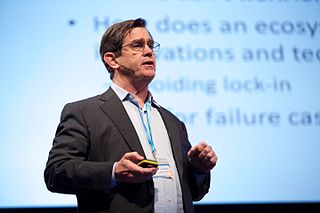A Quote by Benjamin Franklin
As we benefit from the inventions of others, we should be glad to share our own ... freely and gladly.
Related Quotes
In a world of widely distributed knowledge, companies cannot afford to rely entirely on their own research, but should instead buy or license processes or inventions (i.e. patents) from other companies. In addition, internal inventions not being used in a firm’s business should be taken outside the company.
One of the most effective ways to overcome anxiety is to try to shift the focus of attention away from self and toward others. When we succeed in this, we find that the scale of our own problems diminishes. This is not to say we should ignore our own needs altogether, but rather that we should try to remember others' needs alongside our own, no matter how pressing ours may be
Glad and merry and sweet is the blessed and lovely demeanour of our Lord towards our souls, for he saw us always living in love-longing, and he wants our souls to be gladly disposed toward him . . . by his grace he lifts up and will draw our outer disposition to our inward, and will make us all at unity with him, and each of us with others in the true, lasting joy which is Jesus.
We know that global capitalism, and the commercially driven culture that comes with it, can be a powerful solvent, but many of us who benefit from it economically can regret the effect it has on our own lives as well as on the lives of others, and we should not view ourselves as helpless in the face of an irresistible force, especially since we may very well be complicit. We should be prepared to help others or to leave them be to sustain their cultures if we judge that they are of intrinsic value or of value to their members.
The immature conscience is not its own master. It simply parrots the decisions of others. It does not make judgments of its own; it merely conforms to the judgments of others. That is not real freedom, and it makes true love impossible, for if we are to love truly and freely, we must be able to give something that is truly our own to another. If our heart does not belong to us, asks Merton, how can we give it to another?






























